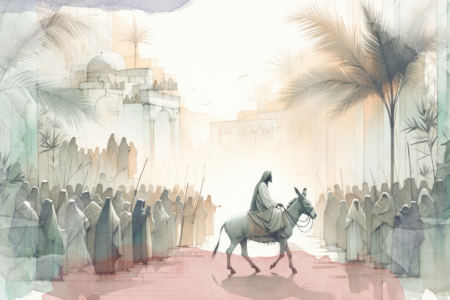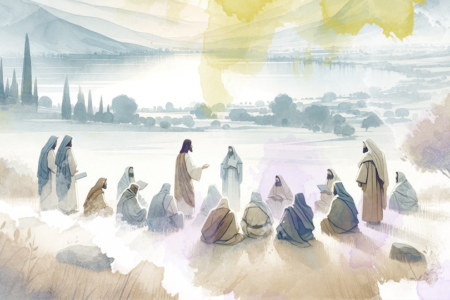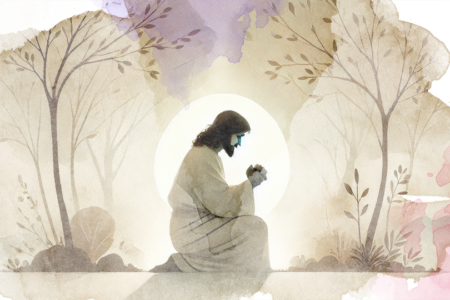The Life, Times And Message Of Isaiah The Prophet PART XXVII
ISAIAH 31
1-3 Isaiah continues to denounce the rulers of Jerusalem for their reliance on Egypt instead of God.
1 Woe to them that go down to Egypt for help,
And rely on horses, and trust in chariots, because they are many,
And in horsemen because they are strong,
But do not look to the Holy One of Israel,
Neither do they seek the LORD.
2 Yet, He too is wise and will bring evil,
And will not set aside His words.
He will rise up against the house of the wicked,
And against the supporters of evildoers.
3 Now Egypt is man and not God,
And their horses are flesh and not spirit,
So when the LORD shall stretch forth his hand,
Then the helper shall stumble, and he who is helped shall fall,
And both shall perish together.
Comment:
1-3 Because the sinister efforts to secure Egyptian help for Judah continue, the prophet also continues his warnings. Obviously, the Judeans felt severely handicapped vis-a-vis the Assyrians, by their lack of cavalry and chariots, the ancient equivalent of tanks in modern warfare.
Egypt was famous for its fine horses, its horsemen and its chariots. So that is where they sought help. The fact that Judea and Egypt were confronted by a mutual enemy, Assyria, made them natural allies.
Isaiah was outraged by the fact that the leaders of Judah thought only in terms of horseflesh and manpower, failing to seek help from God.
He too is wise . . . (v. 2)
There is irony in the words of Isaiah:
“You think that you are so clever, but God is also wise, and He will carry out His plans without fail.”
For Egypt is man and not God and their horses flesh . . . (v. 3).
In one brief passage the prophet exposes the fallacious schemes of those who depend on Egypt and their horses, which are only frail flesh and blood. When God will strike, the helper and the helped will both perish.
4-5 There is no escape from the hand of God.
4 For thus says the LORD to me:
Like as when the lion, or the young lion
growls over his prey.
And when the horde of shepherds are called out against him,
He is not frightened by their shout,
And disregards their noise,
So also will the LORD of hosts descend on Jerusalem
To fight upon mount Zion and upon her hill.
5 Like hovering birds,
So will the LORD of hosts protect Jerusalem,
And while protecting, He will save,
And passing over, He will rescue.
Comment:
4-5 In two epic similes, reminiscent of Homer, Isaiah describes the manner in which the LORD will fight for Jerusalem and protect His people: He will fight like a roaring lion and like a flock of birds which hover in the air to protect their nest.
Passing over He will rescue (v. 5)
The Hebrew word for “passing over” (Pasoah) is an allusion to the miracle of passover. The LORD will repeat again the miracle of passover, and rescue HIS people.
6-9 A Call To Repentance
6 Turn you to Him, against whom you have rebelled, O sons of Israel.
7 For in that day you will cast away, every man,
his idols of silver and his idols of gold,
Which your hands have made for you, for a sin.
8 And the Assyrian shall fall by a sword which is not human,
And a sword which is not man-made shall devour him.
He shall flee from a sword,
And his young men shall become bondsmen.
9 And his rock shall pass away,
And his princes shall flee from the standard.
Thus says the Lord, whose fire is in Zion,
And His furnace in Jerusalem.
Comment:
6 Shuvu- “Turn” or “turn back, repent,” this is the very heart of Isaiah’s message. Israel has deeply offended her LORD and can only be saved from her enemies and the consequences of her sins by turning to God. Here in the context of this particular oracle, Israel is to turn to God,
because He alone, and not weak, unreliable Egypt, can save her from Assyria, the wicked empire which will fall by a sword, not wielded by man, but by God Himself.
9 And his rock shall pass away.
The rock is generally understood as a reference to Sennacherib, the king of Assyria, who hastily abandoned his preparation for the siege of Jerusalem in 701 B.C. when his army was decimated by a terrible epidemic.
ISAIAH 32
Various prophetic utterances concerning the Messianic King, the wicked rich, the complacent women, the approaching day of Judgment and Redemption.
V. 1-8 The Messianic King and a Regenerated People
1 Behold, a king shall reign in righteousness,
And princes shall rule in justice.
2 And a man shall be like a shelter from the wind,
And a refuge from the storm,
Like streams of water in an arid place,
Like a shadow of a great rock in a weary land.
3 The eyes of those who look shall not be shut,
And the ears of those who listen shall be attentive.
4 The heart of the hasty shall understand knowledge,
And the tongue of the stammerers shall speak clearly.
5 No longer will they call the villain “noble,”
Nor will the crook be addressed as “honorable.”
6 For the villain speaks villainy,
And his heart devises wickedness,
To speak perversely against God,
To cause the soul of the hungry to crave,
And to deprive the thirsty of drink.
7 The instruments of the crooked are wicked.
He devises foul schemes,
To destroy the poor with lies,
When the needy pleads for justice.
8 But the noble man plans noble things,
And by that which is noble he shall abide.
Comment:
1-8 A beautiful vision of the future king described in messianic terms. He and those who rule with Him (the princes) are characterized by perfect justice. No historical king ever fitted this description, which must be understood as a further elaboration of Isaiah’s vision of the King Messiah, presented in chapter 11:1-10
2 A man shall be a shelter. . . .
The man is the king of verse one.
3-4 The spiritual restoration will affect the whole nation. The curse of blindness and unwillingness to listen to God and to understand His word, will at last be removed.
4 The heart of the hasty. . . .
The rash and foolish people who form their opinions without sound judgment will learn true knowledge and wisdom.
The stammerers are apparently the vacillators who hem and haw, where clear and forthright speech is called for. They will at last learn to be clear, and without equivocation.
5-7 Isaiah inveighs against a hypocritical society where the villain Hebrew “nabhal” – is called ‘a noble man.”
Perhaps the perfect specimen of a vile person was Nabel (1 Sam. 25), a man whose very name meant “vile,” and whose character was in keeping with his name. The prophet vehemently denounces the moral villainy and skull-duggery which he observed among the ruling circles of Jerusalem. These are contrasted with the regenerated community, yet to be born.
8 But the noble man plans noble things.
In a few words the prophet describes the essence of the true “nadib” – the noble man. He thinks nobly and acts nobly. One has the strong feeling that when Isaiah describes the true noble man, the spiritual aristocrat, he unwittingly projects his own inner self. For Isaiah was a man of great integrity and nobility, qualities which shine forth from all his words and actions. This nobility of character, described and personified by Isaiah himself, represents the prophetic ideal of “the perfect gentleman.”
V. 9-20 Against the Complacent Women of Jerusalem. The Approaching Judgment and Redemption.
9 Rise up, you complacent women, listen to my voice,
Give ear to my speech, you overconfident daughters.
10 In a year and some days you shall be troubled,
You who are (so) confident (now),
The grape harvest shall fail, the ingathering shall not come.
11 Tremble, you complacent women,
Be troubled, you overconfident ones,
Strip yourselves, make yourselves bare.
12 Put on sackcloth around your loins,
Beat your breasts for the pleasant fields, for the fruitful vineyards.
13 For the soil of my people,
Where thorns and briers shall come up,
And for all the happy houses and the gay city.
14 For the palace shall be forsaken,
the noisy city abandoned.
The citadel and the tower shall become dens forever,
the delight of wild asses, the pasture of flocks.
15 Until the spirit be poured out upon us from on high.
Then shall the wilderness become a fruitful field,
And the fruitful field shall be considered a forest.
16 Then shall justice dwell in the wilderness,
And righteousness shall abide in the fruitful field.
17 And the work of righteousness shall be peace,
And the effect of righteousness quietness and confidence forever.
18 My people shall dwell in peaceful habitations,
In safe dwellings in secure places of rest.
19 And it shall hail, when the forest shall come down,
and the city shall be laid low.
20 Blessed are you, who sow beside all waters,
Who send forth the feet of the ox and the ass (to roam freely).
Comment:
9-14 From the very beginning of his prophetic ministry, Isaiah perceived that one of the main evils which was eating away the moral health of his nation was the carefree, happy-go-lucky, flirtatious and selfish life of Judean womanhood. He derided their manners and exposed their self-indulgent ways in one of his earliest oracles of woe, when he foretold the dire calamity which will one day overtake the selfish women (Isaiah 3:16-26).
Those women were the wives and daughters of the ungodly rulers of Israel; they, with their menfolk, were equally responsible for the moral decay of the nation. Now Isaiah returns to the same theme and inveighs against “the complacent women and the overconfident daughters.” Like their menfolk, they too are blind to the tragic reality of the situation, and do not see judgment day approaching. Yet, within a little over a year disaster will strike and the harvest of grapes and grain will fail (v. 10; 12-13). It is very likely that Isaiah uttered this prophecy in 703 or 702 B.C. just a year or so before Sennacherib invaded Judah, where he wrought great havoc before he was finally forced to retreat from Jerusalem by an act of God.
The Assyrian sword was literally hanging over the head of Judah. Many numerous and much stronger nations than Israel had already succumbed to seemingly invincible Assyria. And yet the leaders of Judah, including their women, lived as if nothing could happen to them. They ate, they drank, they made merry. Their women dressed according to the latest fashion of their day. Luxurious living was the way of life of the rich, while the poor had to pay for it with their life’s blood and with their wretchedness. Amos denounced a similar situation which prevailed in the northern kingdom, in Samaria.
Isaiah wrathfully demanded of the corrupt rulers of Jerusalem:
What mean you that you crush my people
and grind the face of the poor? (3:1.5)
Now the prophet was warning the complacent, smug, self-satisfied women of Jerusalem to wake up and repent, for the day of reckoning was at hand. But the pending disaster may be averted if they will only repent and turn to God.
15-20 The theme of this passage is the restoration which will come after the people of Jerusalem repent.
15 Until the spirit shall be poured out upon us from on high.
Before the Lord can show mercy to His people, they must first receive “the Spirit from on high.” Then man and nature shall experience a new birth. Justice and righteousness shall dwell not only in the fruitful fields, but even in the wilderness.
17 And the work of righteousness shall be peace. . . .
Here is one of the most beautiful passages in the prophetic Scriptures. Peace, security and safety are not the results of military power nor of alliances, or victorious wars, but the fruit of righteousness.
19 It shall hail at the downfall of the forest. . . .
The city shall be laid low.
A reference to Assyria, which will soon be destroyed by a great calamity. The city is Nineveh.
20 Blessed are you, who sow beside all waters. . . .
This idyllic picture of a happy people, living under a just, messianic king, cultivating their fruitful soil, at peace with God and with men, concludes this oracle.
ISAIAH 33
ASSYRIA, THE SPOILER SHALL BE DESPOILED, JERUSALEM DELIVERED
V. 1-12 Jehovah will punish Assyria. Judah’s Present Desolation.
1 Woe to thee that spoilest and thou hast not been spoiled,
That plunders and hast not been plundered.
When thou shalt cease to spoil, thou shalt be spoiled,
When thou shalt be done with plundering, thou shalt be plundered.
2 O LORD, be gracious unto us, we have waited for Thee,
Be Thou their arm every morning,
Our sure salvation in time of trouble.
3 At the sound of the noise peoples flee,
When Thou risest, nations are scattered.
4 And your loot is gathered as the caterpillar gathers,
They leap upon it as the locusts leap.
5 The LORD is exalted, for He dwells on high,
Be has filled Zion with justice and righteousness,
6 And the security of thy times shall be a store of salvation.
-Wisdom and knowledge, the fear of the Lord—this is his treasure.
7 Behold the inhabitants of weep Ariel cry in the street,
The messengers of peace weep bitterly.
8 The highways are desolate, the wayfarer has ceased.
He has despised the cities, he does not respect (any) man.
9 The land mourns, it languishes.
Lebanon is ashamed and dried up.
Sharon is like a desert,
Bashan and Carmel are stripped bare.
10 Now will I arise, says the LORD,
Now will I be exalted,
Now will I lift myself up.1
11 You conceive chaff, you will bring forth straw,
Your breath is fire which shall devour you.
12 And peoples shall be as lime burnings,
As cut down thorns, which are burned in the fire.
General Note and Comment:
Because of supposed differences in style and contents of chapter 33, it has been relegated by some critical commentators to the post-exilic period, even to as late a date as 163 B.C. (the Maccabean period). These highly speculative assumptions have preceded the discovery of the Dead Sea Scrolls, and the two manuscripts of Isaiah which date back to about the middle of the second century B.C.
However, the language and contents of this chapter are in keeping with all the other writings of Isaiah, and the events alluded to here fit in well with the history of Sennacherib’s abortive effort to subdue Jerusalem in 701 B.C.
1 Woe to the spoiler. . . .
An obvious allusion to the Assyrian invaders under Sennacherib. As soon as they will have completed the task assigned to them by God—of punishing Judah, they themselves will be punished by him (see also Isaiah 10:5-9).
2 O LORD be gracious unto us. . . .
In the face of Assyria, the superpower of that day, Israel felt completely helpless. Only Jehovah could deliver His people, hence this cry to God for help.
3-6 Here is a typical Isaianic vision of an aroused Jehovah in action, roaring like a volcano and scattering the terrified nations assembled to destroy Israel.
After the debacle, the inhabitants of Jerusalem leap upon the spoil, left behind by the enemy, like so many caterpillars and locusts (v. 4).
Then will the Lord be exalted and Jerusalem will be filled with justice and righteousness. Jerusalem’s true security and her defense are not mighty armies, but wisdom, knowledge and the fear of the LORD (5-6).
7-9 The present plight of Jerusalem.
Behold the inhabitants of Ariel cry in the street.
The Hebrew word “erelam” is translated in the KJV as “the valiant ones,” but it is apparently an allusion to the inhabitants of Jerusalem, which Isaiah (29:1) has previously called Ariel—”the hearth” or “the altar of God.”
It would appear from our text that after Sennacherib captured Lachish and many fortified cities in Judah—and, according to Assyrian record, carried away over 200,000 prisoners—Hezekiah sent “messengers of peace” to negotiate terms. However, Sennacherib with his customary brutality insulted the ambassadors, who returned to Jerusalem humiliated and weeping (v. 8)
As a result of the Assyrian depredations, the whole land is desolate, the highways are deserted, the most fertile regions of the land (Lebanon, Sharon, Bashan, and Carmel) lie idle and untilled.
10-12 In the hour of Israel’s humiliation and desolation, the LORD will arise in defence of His people. Isaiah uses the most stirring terms to describe this intervention—
Now will I arise
Now will I be exalted
Now will I lift myself up. 1
The grandiose designs of the enemies of God’s people are mere chaff and straw which shall be burned like lime in a potter’s kiln, or cut down like dry thorns. Their own breath, or spirit, shall be the means of their destruction. The implied thought is that evil carries within itself the seeds of its own destruction.
13-24 The effect of the LORD’S intervention upon the sinners in Israel.
13 Hear, you who are far away, what I have done
And you who are near, know my might.
14 Sinners in Zion are horror stricken,
Trembling has seized the hypocrites.
Who among us can dwell with a consuming fire,
Who among us can abide with everlasting flames?
15 He that walks in righteousness and speaks uprightness
Who despises the gain of oppressions,
Who withdraws his hand from holding a bribe,
Who stops his ear from counsels of bloodshed,
And shuts his eyes from looking upon evil.
16 He shall dwell in high places,
His stronghold a rocky fortress
His bread assured, his waters secure.
17 Thine eyes shall look upon the King in His beauty,
They shall see a far stretching land.
18 Thy heart shall ponder the terror:
`Where is he that counts, where is he who weighs,
Where is he that counts the towers?’
19 Thou shalt not see the fierce people,
A people of deep speech hard to hear,
Of an unintelligible tongue, difficult to understand.
20 Look upon Zion, the city of our solemn assemblies,
Thine eyes shall see Jerusalem a peaceful habitation,
A tent shall not be removed,
Her stakes shall never be pulled up,
Her cords shall never be broken.
21 There shall the Lord be with us in majesty,
A place of broad rivers and streams,
No gallery with oars shall venture there,
No splendid ship shall pass by.
22 For the LORD is our Judge,
The LORD is our Lawgiver,
The LORD is our King,
He will save us.
23 Thy ropes are slack,
They do not hold up the stand of the mast,
They do not spread the sail.
Then shall great spoil be divided,
Even the lame shall take the plunder.
24 And none of the inhabitants shall say, “I am sick.”
For the people that dwell there shall be forgiven their iniquity.
Comment:
In verse 13 the prophet addresses himself to the distant enemies (“you who are far away”), and to the people of Zion, (“you who are near”).
14 When the Lord shall appear in power and might, the sinners in Zion will be terror-stricken and wonder who will be able to abide in the presence of an indignant but righteous God.
Vs. 14-15 Here is the prophet’s answer to the anxious inquiry also posed in Psalms 15 and 24 “Who shall abide in the presence of God?”
Only the man who walks in righteousness, abhors all unjust gain, whose hands are clean from bribery, who refuses to listen to wicked counsels of bloodshed or to look indifferently upon evil, only such a man “shall dwell on high.” His home is like a rocky castle which shall remain secure, his daily bread and water shall be provided in abundance. Such is the reward of those who walk with God. (v. 16).
Vs. 17-18 Thine eyes shall look upon the king in his beauty.
Some commentators, including Delitzsch, understand this passage to be a reference to an earthly king, who will reign over Jerusalem after the defeat of the Assyrian invaders. Others see in this a messianic prophecy.
Actually, the prophet combines the vision of the immediate future with the more distant messianic times. This literary device is a frequent feature of Isaiah’s prophecies, sometimes called “the pregnant prophecy.” Such prophecies while seemingly dealing with the immediate future, reach out into the distant future. Redeemed Israel shall look upon the glorious king and a vastly enlarged country. They will consider the terrors of the past; they shall wonder what happened to the highhanded alien officials who exacted tribute from them, – who weighed and counted what the people of Israel should give to the conquerors, and which towers (strongholds) should be destroyed.
19 The fierce people who speak in a strange, unintelligible language, the foreign invader, will be no more, only a dark memory of the past.
20 Instead they shall behold a peaceful Jerusalem, secure and well-established.
21 There the Lord shall dwell with His people.
Other nations, Egypt and Assyria, have their broad rivers and streams for their protection, which no hostile ships dare trespass. Jerusalem has better protection – her Lord.
22 This verse expresses in majestic terms what Jehovah is to His people Israel: He is her Judge, Lawgiver, King and Saviour. What a pinnacle of faith, what grandeur!
23 Thy ropes are slack. . . .
The sudden change of imagery of a ship disarrayed by a storm is rather disconcerting to some commentators, who look upon this verse as an intrusion from some other oracle. However, we have to allow for the prophet’s unexpected changes of mood and imagery, to which he, like other men, was frequently subject. Here Isaiah returns for a moment from musing about the glorious future of Jerusalem to her present sad plight. In verse 21 he referred to the Lord’s presence in His city, as a broad river, where no enemy flotilla, or man-of-war, would dare to intrude; now he thinks of Jerusalem as a broken down battered ship after a storm, with her ropes slack, and unable to support mast or sail.
Then again, in rapid change of vision, Isaiah turns away from the present pathetic plight of Jerusalem to her glorious future. Isaiah sees her deliverance and the approaching “spoiling of the Assyrian spoiler.” Even the lame and the halt will share in the division of the spoils.
24 In those days of divine deliverance, nobody will be sick, because the people will have their sins forgiven. The prophet expresses here the biblical thought that sin and sickness are interrelated, as in Exodus 23:25.
And ye shall serve the LORD your God, and
He shall bless thy bread, and thy water, and
I will take sickness away from the midst of thee.
ENDNOTE
- The three Hebrew verbs in Isaiah 33:10 which are applied to God are similar to those used in chapter 52:13 where they are used with reference to the Servant of the LORD, another indication which points to the unity of the first and second part of Isaiah.







